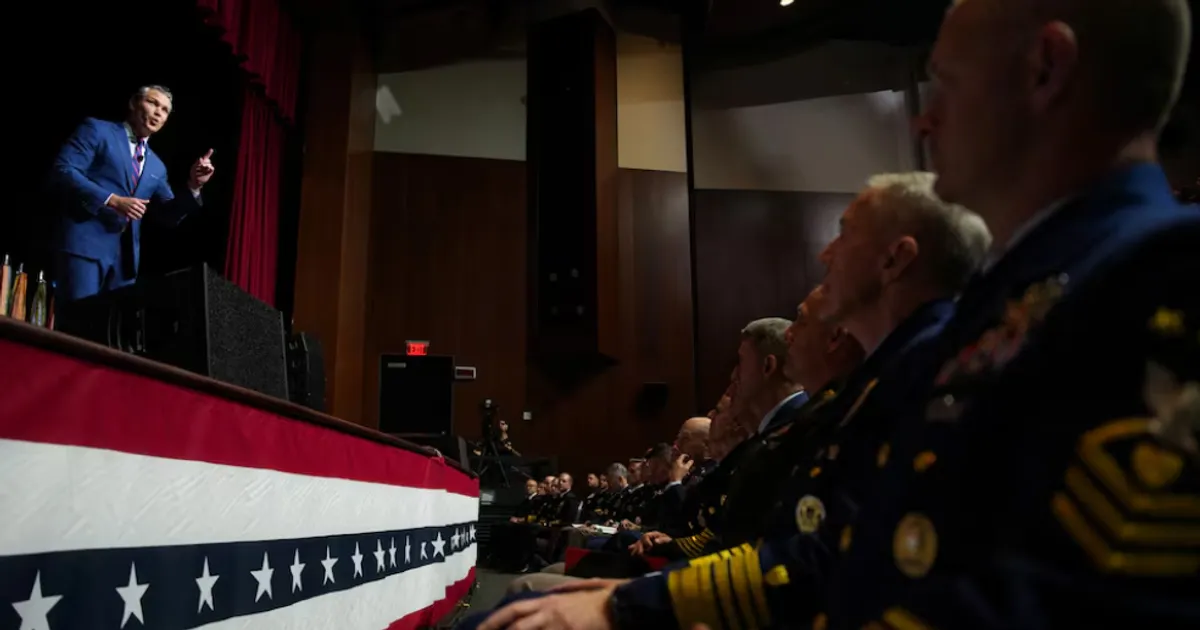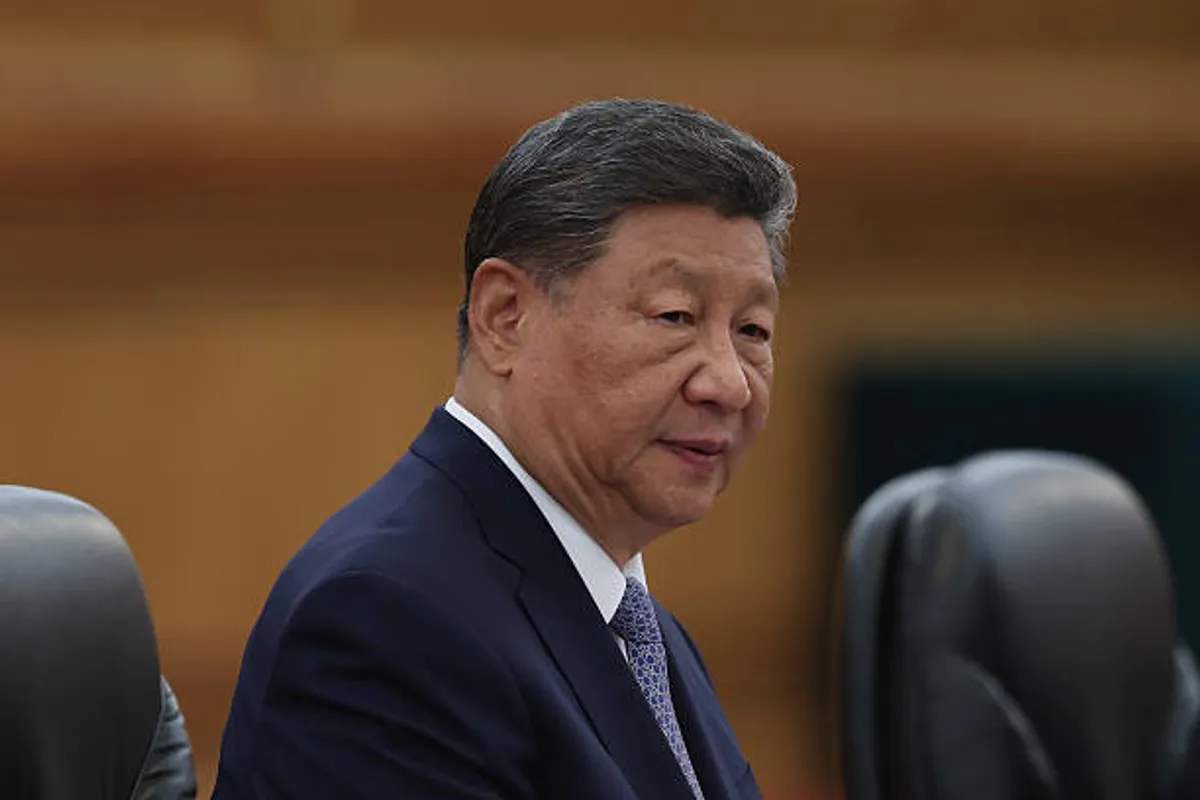
Hegseth Tells Senior Officers to Resign if They Oppose His Agenda at Rare Quantico Gathering

GeokHub
Contributing Writer
U.S. Defense Secretary Pete Hegseth opened a rare meeting of senior military leaders at Marine Corps Base Quantico by sharply criticizing what he called decades of decline in the armed forces and warning officers they should step down if they do not support his reform agenda.
Hegseth accused past political decisions of steering the Pentagon off course and singled out diversity initiatives and grooming standards as symptoms of that decline, using blunt language about “fat generals and admirals” and declaring “we became the ‘Woke Department.’” He told the assembled officers that, if his remarks made them “hearts sink,” they should resign.
The defence chief defended recent firings of several flag officers, including the removal of the top U.S. general and the Navy’s top admiral, framing the actions as part of a broader effort to restore discipline and overhaul how discrimination complaints and misconduct investigations are handled at the Pentagon.
Hegseth also announced policy shifts tied to appearance and fitness standards — saying fitness tests would be set to male benchmarks and stressing stricter grooming rules — moves he argued were necessary to rebuild readiness and professional standards.
President Donald Trump attended the event and expressed strong backing for Hegseth, telling commanders he supported them and even warning he would remove leaders on the spot if he disapproved of them. Trump’s presence and comments underscored the close alignment between the White House and the Pentagon leadership under the current administration.
The gathering comes amid a period of sweeping change at the Pentagon, including personnel reshuffles, a controversial executive order renaming the Department of Defense to the “Department of War,” and broader policy shifts that have drawn scrutiny about politicization of the U.S. military. Observers say the tone and content of Hegseth’s speech will prompt renewed attention to civil-military norms and how commanders respond publicly to political direction.
While Hegseth argued the measures are aimed at restoring effectiveness and morale, critics warn that public calls for loyalty and personnel overhauls risk eroding the apolitical principle that has long governed U.S. armed forces. The responses — both within the ranks and from lawmakers and defence analysts — will be watched closely in the weeks ahead.


















































